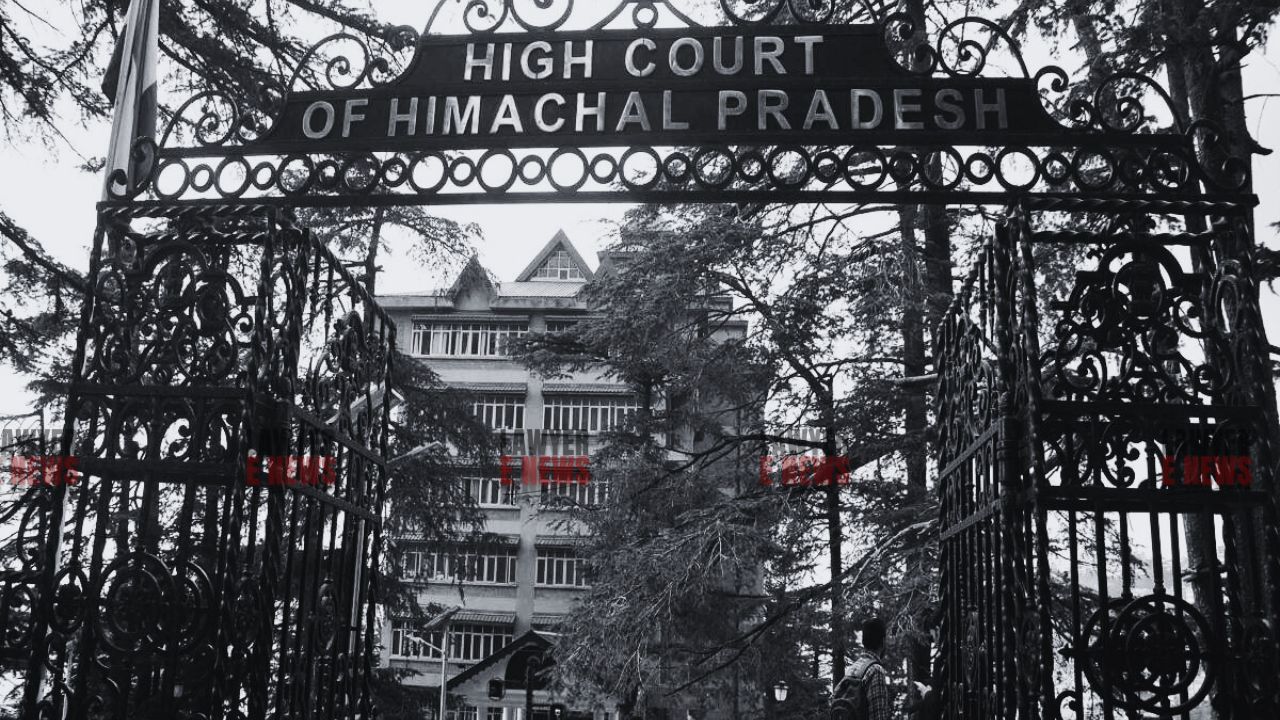-
by sayum
14 February 2026 2:22 PM



Interview-based selection criteria in Forest Department's Van Mitra scheme quashed for lack of expert recommendations. The Himachal Pradesh High Court has invalidated the allocation of 10 marks for personal interviews in the selection process for Van Mitra positions in the state's Forest Department. In its ruling, the court criticized the inclusion of interview marks as arbitrary, noting the absence of expert body recommendations. The decision also reaffirmed the importance of adhering to government policies that prohibit interviews for junior-level posts.
The case arose from a writ petition filed by Diksha Panwar challenging the Himachal Pradesh government's decision to include 10 marks for personal interviews in the Van Mitra recruitment scheme, which was introduced on October 18, 2023. The scheme aimed to recruit 2,061 individuals for the Van Mitra positions to enhance community participation in forest conservation. However, the petitioner argued that the inclusion of interview marks contradicted a 2017 state notification, which had discontinued interviews for Class-III and IV posts, in line with a 2015 central government directive.
The petitioner cited a July 2023 judgment in People for Responsible Governance vs. State of HP, where the state had committed to follow the 2017 notification. The petitioner contended that including interview marks without any substantive rationale violated both the doctrine of legitimate expectation and the principles of administrative fairness.
Absence of Expert Recommendations: The court noted that the decision to assign 10 marks for interviews lacked any recommendations from an expert body. Justice Bipin Chander Negi observed, "From the record, it is evident that the allocation of 10 marks for interviews in the Van Mitra scheme was not based on expert recommendations, but rather introduced during a cabinet meeting on October 11, 2023." The absence of justification in the initial concept paper for the scheme further weakened the state's case.
Violation of Previous Policies: The court emphasized that the state had committed to eliminating interviews for Class-III and IV posts under the 2017 notification. "Standards so professed must scrupulously be observed; if not, acts in violation thereof must be invalidated," Justice Negi stated, referencing Supreme Court precedents such as Ramana Dayaram Shetty vs. International Airport Authority of India. The court highlighted that even the controlling officer of a Van Mitra, the Forest Guard, is not subjected to interview marks in their selection process, making the inclusion of such marks for the Van Mitra role unjustifiable.
Justice Negi reiterated that the object of any selection process is to secure the best candidates, avoiding favoritism or arbitrary criteria. He acknowledged that interviews could assess certain personal qualities, but only when these factors could not be evaluated by other means. In this case, the physical efficiency test already in place for Van Mitra candidates could provide a more objective measure.
The court accepted the petitioner's argument that the doctrine of legitimate expectation was applicable. It held that since the state had categorically indicated in the 2017 notification that no interviews would be conducted for similar posts, candidates were justified in expecting the government to adhere to this policy.
The court's reasoning centered around the arbitrary nature of the interview marks and the state's deviation from its own established policy. Relying on past judgments, the court concluded that the inclusion of the 10 marks for interviews was both unjustified and irrational. It further stressed that administrative decisions must not violate constitutional principles such as Article 14 (Right to Equality).
The court rejected the state’s defense that the Van Mitra positions did not qualify as Class-III or IV posts, and that the decision to include interview marks was a policy matter beyond judicial review. It held that policy decisions could be challenged if they were manifestly arbitrary or violated established guidelines.
In a significant ruling, the Himachal Pradesh High Court has reaffirmed the importance of non-arbitrary selection criteria in public employment. By quashing the 10 interview marks in the Van Mitra recruitment scheme, the court has underscored the need for transparency and adherence to policy commitments in government appointments. This decision sets a precedent for similar cases and reinforces the application of the doctrine of legitimate expectation in administrative law.
Date of Decision: September 3, 2024.
